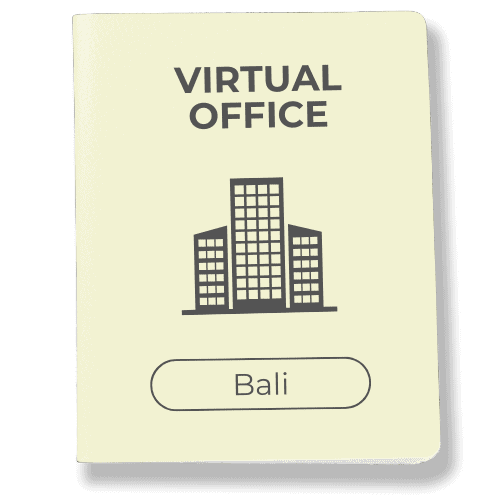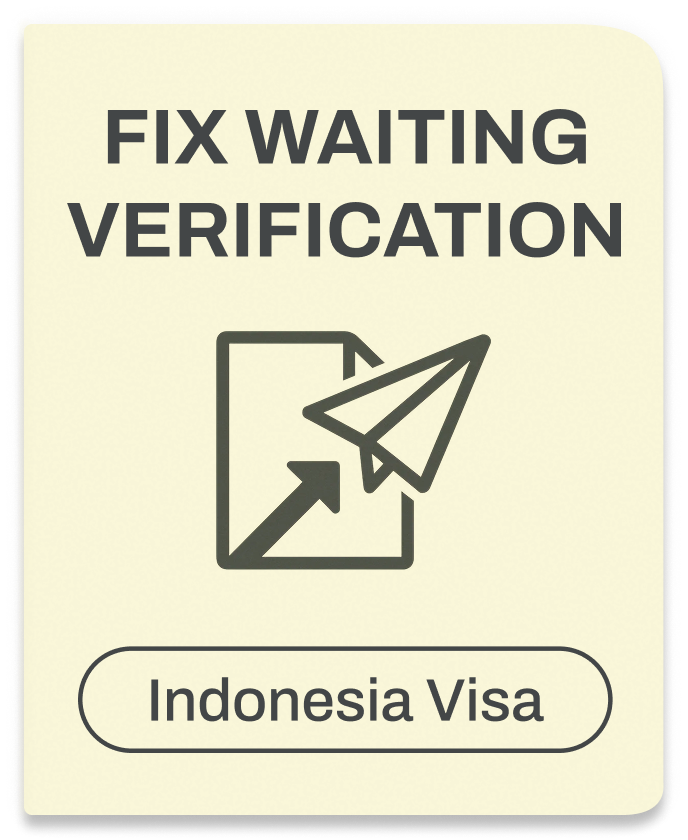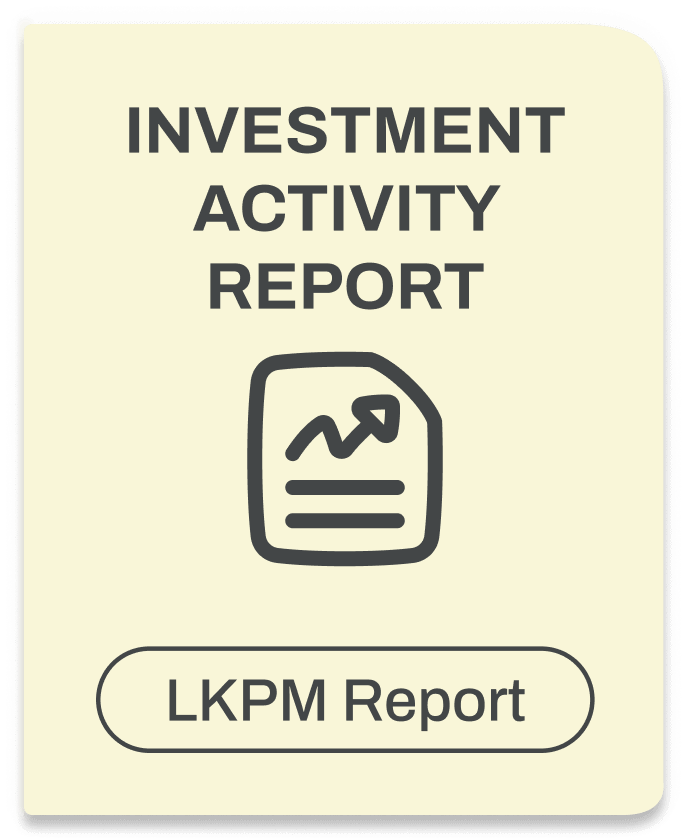Starting a Business in Bali Made Easy

Bali attracts entrepreneurs from around the world, drawn by its vibrant culture, lifestyle, and expanding business opportunities. If you’re one of them, the good news is: yes, you can legally own a business in Bali.
The key is a PT PMA, Indonesia’s company structure that allows full foreign ownership. With it, you can run your operations, hire a team, rent a space, open a bank account, and even sponsor your visa.
Of course, starting a business in a foreign country comes with its own set of challenges, but it’s far less daunting with local experts guiding you through the paperwork, licenses, and setup process. Now, let’s get into the details.
Business Structure Options

When establishing a business in Bali as a foreigner, selecting the appropriate legal structure is crucial. Foreign investors can choose from several business entities and legal entities. Your choice will influence ownership rights, capital requirements, operational capabilities, and compliance obligations, and is essential for conducting business and operating legally in Bali. Businesses in Bali span a wide range of sectors, including tourism-related businesses and creative ventures, making it necessary to understand which structure best suits your intended industry.
It is essential to note that the choice of business sector can impact the registration process, as certain sectors may have specific restrictions or requirements for foreign investors.
Below are the primary business structures available to foreign investors, including the representative office, which is an option for those seeking a non-income-generating presence in Bali.
Understanding the key legal requirements and completing company registration are essential steps for foreign investors looking to establish a business in Bali.
1. Foreign-Owned Limited Liability Company (PT PMA)
A PT PMA (Perseroan Terbatas Penanaman Modal Asing) is a full foreign ownership limited liability company established under Indonesian law. It allows up to 100% foreign ownership in various sectors, as specified in the Positive Investment List. To register, you’ll need at least two shareholders, who can be individuals or legal entities, and a resident director with a valid Tax Identification Number (NPWP).
A PT PMA company can employ foreigners, sponsor work permits, and hire foreigners legally. You must meet the minimum capital requirements of IDR 10 billion in authorized capital, with at least IDR 2.5 billion paid-up. Once approved, your business becomes a fully recognized legal entity, capable of owning property, conducting commercial activities, and generating revenue under its name.
2. Local Limited Liability Company (PT) with Nominee Arrangement
If you’d like to set up a local PT company (PT PMDN), you’ll need to partner with at least one Indonesian citizen. Some foreign investors choose to register such a company, using nominee arrangements with an Indonesian citizen to bypass ownership limits tied to foreign investment. This structure requires lower capital requirements than a PT PMA, and it can operate in sectors closed to foreign ownership.
While local companies may be suitable for small-scale businesses, their setup carries significant legal risks. Nominee agreements aren’t protected under Indonesian law, offering little legal protection. Foreign investors have limited recourse in the event of disputes. Unlike foreign-owned companies, local companies are wholly owned by Indonesians and provide less security for foreign stakeholders.
Joint Venture with Indonesian Partner
When foreign ownership is restricted, a joint venture with a local partner can offer a legal path into the market. Ownership is shared between foreign and Indonesian parties, with terms tailored to sector-specific rules. Capital requirements vary by industry and the terms of the partner agreement.
The joint venture can conduct full business activity as long as it aligns with regulations, ensuring compliance within each business sector. Success depends on choosing a reliable partner and drafting clear, comprehensive agreements to define roles, profit-sharing arrangements, and dispute resolution mechanisms.
Yayasan (Nonprofit Foundation)
Want to start a school, charity, or social project? A Yayasan is a nonprofit legal entity in Indonesia. Foreigners can’t own a Yayasan, but they can be listed as founders, donors, or hold key positions. You can’t take profits, but you can make a difference.
Capital Requirements for Starting a Foreign Company in Bali
Setting up a company in Bali as a foreign investor isn’t just about having a good idea; it also means meeting the right capital thresholds. These requirements help ensure your business is financially equipped to operate and scale responsibly. Capital thresholds are set by the country’s regulations and are enforced by the Indonesian government.
Authorized vs Paid-Up Capital
Authorized capital is the maximum amount your company is allowed to raise. Think of it like your company’s financial ceiling. Paid-up capital, on the other hand, refers to the amount of money you deposit into the company’s account, ready to be utilized.
For a typical PT PMA (foreign-owned company), the minimum investment plan must show an investment of IDR 10 billion (approximately USD 650,000). However, only IDR 2.5 billion (approximately USD 160,000) needs to be paid upfront as initial capital. This demonstrates to the government that your business has a serious intent.
How Do You Prove It?
Proof comes in two parts:
- A formal Statement Letter of Capital signed during the notarial deed process.
- A bank statement showing the funds were deposited into an Indonesian corporate account.
Some sectors may require additional documentation, especially if your field is considered high-risk or capital-intensive.
Visa Options for Founders and Teams in Bali
Choosing the correct visa is a crucial step for entrepreneurs and their teams seeking to establish a business in Bali. A business visa is required for short-term business activities, attending meetings, or exploring investment opportunities in Bali. Indonesia offers a range of options tailored to various business phases and investment levels. Visa applications and compliance are handled through the Indonesian Immigration Office. Here’s a straightforward guide to help you pick the right one:
Business Visa (C2)
If you’re still in the early stages, scouting locations, meeting partners, or preparing documents, Business Visa is your best starting point. It allows you to enter Indonesia for 60 days (extendable) and is ideal for business preparation, rather than actual operations. You can’t earn income or sign deals under this visa, but it’s excellent for groundwork.
Investor KITAS (E28A)
Once your company is legally registered and capital is injected, you can apply for an Investor KITAS. This is a Limited Stay Permit valid for 1–2 years, and it allows you to work in your own company as a Director or Commissioner. No work permit (IMTA) is required, making it a popular route for foreign direct investment holders.
To qualify, your name must be listed in the company’s deed, and you must meet the minimum shareholding and capital thresholds.
Golden Visa (E28B/C/D)
If you’re looking for a more extended stay and additional benefits, Indonesia now offers a Golden Visa program for high-net-worth individuals. This visa allows for a 5- or 10-year stay, depending on the type of investment, starting from $350,000 USD for individuals who invest in government bonds, shares, or property.
For business founders, the 5-year Golden Visa requires a minimum capital investment of USD 2.5 million.
It’s ideal for those planning to make Indonesia a long-term base.
Notarial Deed & Legalization

Once you’ve decided on your company type, the next step is to formalize it with a notarial deed. In Indonesia, this document serves as the legal birth certificate of your company.
A licensed notary will draft the deed in Bahasa Indonesia, outlining your business name, address, objectives, capital, shareholders, and management structure. Legal services can assist with preparing and reviewing the necessary documentation for company formation and registration. You can also include clauses like dividend distribution rules and dispute resolution methods. While your input matters, the notary ensures everything aligns with Indonesian company law.
After signing, the notary submits the deed for approval to the Ministry of Law and Human Rights. This process usually takes a few working days. Once approved, your company gains legal status and becomes eligible for further registrations.
If your shareholders are foreign entities, you’ll need to prepare legalized corporate documents. These typically include your parent company’s Articles of Association, Certificate of Incorporation, and a Board Resolution. Make sure they’re translated by a sworn translator and legalized, either through an Indonesian embassy or an apostille, depending on your home country.
OSS-RBA Registration Process
Indonesia’s licensing process is conducted through a digital system called OSS-RBA, short for Online Single Submission, Risk-Based Approach. It may sound technical, but don’t worry: once you understand the basics, it becomes more straightforward than it seems. It’s where all business licenses are submitted, reviewed, and approved. Obtaining a business license and other business permits is required to comply with local government regulations. The OSS-RBA system ensures businesses adhere to local laws and local regulations.
What Is OSS-RBA?
Think of OSS-RBA as a central hub. It’s where all business licenses are submitted, reviewed, and approved. The system assigns a risk level to your business activity: low, medium, or high. This risk level determines the number of approvals or permits required to get started.
The lower the risk, the easier the process.
Risk-Based Licensing Tiers
Indonesia classifies business activities into three levels:
- Low-risk: Simply fill out the form and receive your license instantly. No further review.
- Medium-risk: You’ll need to upload additional documents, such as your company’s deed or NIB (Business ID Number).
- High-risk: These require approval from other ministries or local agencies. Expect longer processing times.
Most common businesses, such as restaurants, consulting, retail, or tourism, fall under low to medium risk.
Five-Step OSS Flow
Here’s how the OSS-RBA process works in practice:
- Register your company with a notarial deed and get it legalized by the Ministry of Law and Human Rights.
- Create an OSS account and generate your NIB (Nomor Induk Berusaha).
- Classify your business using the KBLI code that matches your activity.
- Upload supporting documents, capital, domicile address, tax number, etc.
- Download your licenses once approved. You’re ready to operate.
That’s it. No need to run from office to office. It’s all handled online.
Pro tip: If your business involves more than one activity (such as travel and real estate), each may require a separate license, even if they are operated under the same company.
Business Office
When setting up a business in Bali, one of the first things you’ll need is a registered address. However, that doesn’t always mean you need to rent an office immediately.
Virtual Office: A Smart Starting Point
For many foreign founders, a virtual office is the most practical choice. It provides you with a legal business address in Bali without the high cost of renting a whole office space. This address can be used to register your company and receive mail.
Benefits include:
- Lower upfront costs
- Faster company setup
- Flexibility while you look for a permanent space
Virtual offices are beneficial during the licensing process. You can legally establish your business, even if you’re still scouting locations or working remotely.
Physical Premises: Required for Some Sectors
That said, a physical office or storefront is often necessary, especially if your business involves customer interaction, inventory, or on-site services.
Sectors that usually require a real location:
- Hospitality (hotels, restaurants)
- Retail
- Wellness centers or gyms
Once you have found a space, you’ll need to update your OSS records and obtain the relevant location permits. The process is straightforward, but it does take a bit more time.
Core Business Licences

Once your company is registered, you’ll need to obtain specific licenses before you can operate legally. These vary depending on your business activities, but the process is more streamlined than it used to be. Meeting all legal requirements is essential before commencing business operations.
Sector-Specific Permits
Each type of business falls into a category under Indonesia’s OSS-RBA system. Whether you’re launching a café, a yoga studio, or a digital agency, you must align your activities with an Indonesian Standard Classification of Business Fields (KBLI) code. This code determines what licenses you’ll need.
For example:
- A restaurant must get food and beverage handling permits.
- A spa or wellness center may require health and hygiene certifications.
- An e-commerce business needs a trading license (SIUP).
The OSS system will guide you based on your KBLI code; however, it’s advisable to consult a local advisor. They can help flag anything you might overlook.
Operational Permits
Once the sector permit is in place, the next step is to obtain your NIB (Business Identification Number) and relevant operational licenses. These might include:
- A commercial location permit for your business address.
- A liquor license if you serve alcohol.
- A tourism license is required if your business caters to travelers.
Some licenses are auto-issued through OSS, especially for low-risk businesses. Others may require inspections or extra documentation. Virtual office setups often speed things up during the early stage, especially while you scout a long-term location.
Note: Even if your company is legally formed, you can’t start offering services until these licenses are active.
Bank Account & Capital Injection
Once your company is legally registered, the next step is opening a business bank account in Indonesia. This account is where you’ll deposit your paid-up capital, a requirement for validating your business setup.
How to Open a Company Bank Account
To open an account, you’ll need the following:
- A copy of your deed of establishment, legalized by the Ministry of Law and Human Rights
- Your company’s NPWP (tax ID)
- A business domicile letter or proof of address (a virtual office address is allowed in many cases)
- Your company’s NIB (Business Identification Number)
Most foreign-owned companies (PT PMA) choose banks with international experience, such as BCA, Mandiri, or HSBC Indonesia. Some banks may ask the directors or commissioners to be physically present for identity verification.
Capital Injection: What It Means
Paid-up capital is the amount of money shareholders transfer into the company’s bank account. For most sectors, the minimum paid-up capital for a PT PMA is IDR 10 billion (about USD 650,000). However, you don’t need to inject it all at once.
Here’s what matters:
- You must deposit a meaningful initial portion to show business intent
- Your capital should be used for real operating expenses, not just parked funds
- The deposit must be traceable (a clear transfer from the shareholder’s account)
After transferring the funds, the bank will issue a statement letter confirming receipt. You’ll use this letter to finalize licensing steps with the OSS system and BKPM.
Indonesia treats capital injection as a serious indicator of commitment, especially for companies with 100% foreign ownership. If you’re investing in a strategic sector or applying for the Golden Visa, proper documentation of your capital transfer is essential. This helps position your company as a legitimate part of Indonesia’s foreign direct investment ecosystem.
Tax & Reporting Essentials

Setting up a company in Bali means taking tax seriously. Even if your business is small or just starting, reporting obligations apply from the very beginning.
Corporate Income Tax
Most foreign-owned companies are subject to a flat 22% corporate income tax on profits. However, small companies, those with an annual turnover under IDR 50 billion, may enjoy reduced rates, starting at 11%.
Taxable income is calculated from total revenue minus allowable business expenses, including salaries, rent, and depreciation. Profits are reported yearly, and you must file both monthly and annual returns, even if no income is earned.
VAT & Withholding
If your annual revenue exceeds IDR 4.8 billion, you are required to register for Value Added Tax (VAT). The standard rate is 11%, and it applies to most goods and services. You’ll need to include VAT in your invoices and report it monthly.
There are also withholding taxes to consider. For example:
- PPH 21: Income tax withheld from employees’ salaries
- PPH 23: Withheld when paying services or rent to local vendors
- PPH 26: Applies when paying overseas recipients
These taxes are submitted monthly and need timely documentation.
Social-Security Contributions
If you hire employees in Indonesia, you’re responsible for contributing to BPJS (the national social security and healthcare programs). This includes:
- BPJS Ketenagakerjaan (employment insurance)
- BPJS Kesehatan (healthcare)
The contribution rates vary, but employers typically pay around 4%–5% of gross salary.
Frequently Asked Questions
What is the difference between PT and PT PMA?
A PT is a local company that Indonesian citizens must fully own. A PT PMA is a foreign-owned company that allows up to 100% foreign ownership. Only PT PMA can legally be owned and operated by foreigners.
Can PT PMA buy property?
Yes, a PT PMA can lease property or hold long-term land rights (like HGB), which allows it to use land and buildings for its business purposes. However, it cannot own freehold land (Hak Milik), which is reserved for Indonesian citizens.
What is the PMA tax in Indonesia?
PT PMA companies pay a 22% corporate income tax on net profits. Other taxes may apply, such as VAT, employee tax (PPh 21), and withholding tax, depending on the business activity.
Is the VAT rate 12% in Indonesia?
Yes, as of January 1, 2025, the official VAT rate in Indonesia is 12%. However, for most non-luxury goods and services, the effective tax burden remains close to 11% due to a special calculation method. Essential items, such as basic food, education, and healthcare, remain VAT-exempt.
PT PMA Registration Shortcut
Setting up a PT PMA in Indonesia sounds complicated, but with Visa Indonesia, it doesn’t have to be. Simply send us your details, and we’ll handle all the paperwork, including company registration, business licenses, and setting up your company bank account, among other tasks.
You’ll gain full legal ownership, be able to sponsor your visa, and hire staff without any hassle. Most clients are up and running in about 10 business days. If you want the easiest way to start your business in Bali, join the hundreds of founders who already trust us. Get started now
Ready to Apply or Extend Your Visa?
Let our visa specialists handle your application.



















